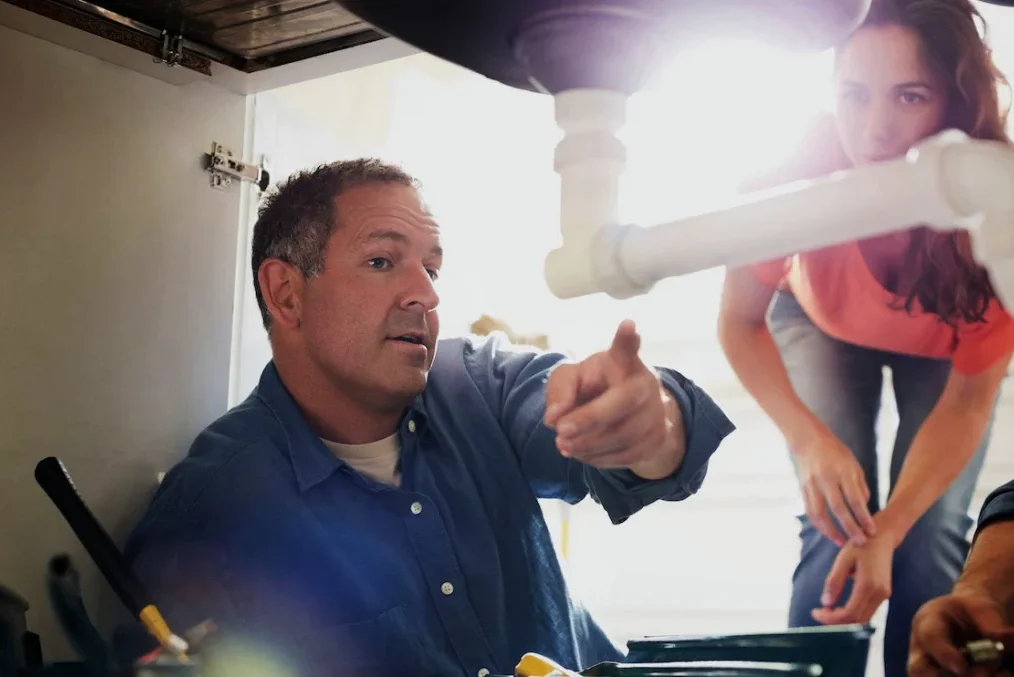What plumbing work can be done without a license?
In Oklahoma, professional plumbing work generally requires a valid license. Unlicensed individuals may only perform basic maintenance or minor repairs that do not involve significant system alterations. Major projects, including installations, repairs, and inspections, must be conducted by licensed professionals to comply with Oklahoma Plumbing Code regulations.
What are the different types of plumbing licenses available in Oklahoma?
Oklahoma offers three primary types of plumbing licenses, each suited to different stages of a plumber’s career: Apprentice, Journeyman, and Contractor Licenses. Licensing is overseen by the Oklahoma Construction Industries Board (CIB).
1. Apprentice License
An Apprentice Plumber works under the supervision of a licensed Journeyman or Contractor to gain experience.
Eligibility:
- Be at least 18 years old.
- Enroll in an approved apprenticeship program.
Requirements:
- Register as an apprentice with the CIB.
- Complete at least three years (6,000 hours) of on-the-job training under supervision.
Fees:
2. Journeyman License
A Journeyman Plumber is qualified to work independently on plumbing projects but cannot operate a business.
Eligibility:
- Complete at least three years of apprenticeship or equivalent experience (6,000 hours).
Requirements:
- Pass the Journeyman exam administered by the CIB.
- Submit proof of completed apprenticeship or work experience.
Fees:
- Exam fee: $75.
- License fee: $50 annually.
3. Contractor License
A Contractor Plumber can operate their own plumbing business, hire employees, and supervise other plumbers.
Eligibility:
- Work as a licensed Journeyman for at least two years (4,000 hours).
Requirements:
- Pass the Contractor exam, which includes trade knowledge and business law sections.
- Provide proof of liability insurance (minimum coverage: $50,000).
Fees:
-
- Exam fee: $75.
- License fee: $100 annually.
Average hourly rates for plumbers in Oklahoma
Plumbers in Oklahoma earn competitive wages based on their experience and license level. Here’s a breakdown of average hourly rates in Oklahoma compared to national averages:
- Apprentice Plumber: $13.50 per hour (National Average: $15.31)
- Journeyman Plumber: $20.87 per hour (National Average: $25.37)
- Contractor Plumber: $28.50 per hour (National Average: $30.46)
Urban areas like Oklahoma City and Tulsa often offer higher wages due to increased demand.
How to get a plumbing license in Oklahoma
Step 1: Begin an Apprenticeship
Enroll in an approved apprenticeship program through local unions, technical schools, or plumbing companies. Apprenticeships combine hands-on training with classroom instruction and typically last three to four years.
Step 2: Gain Experience
During the apprenticeship, complete a minimum of 6,000 hours of supervised work, which includes tasks like installations, repairs, and code compliance checks.
Step 3: Apply for Licensure
After completing the apprenticeship, apply for a Journeyman license through the CIB. Include:
- Proof of work experience.
- A completed application form.
- The $75 exam fee.
Step 4: Advance to Contractor Level
Work as a Journeyman for at least two years before applying for a Contractor license. Pass the required exam and provide proof of liability insurance.
Checklist for Obtaining a Plumbing License
Here’s a quick checklist for obtaining a plumbing license in Oklahoma:
Apprentice License
- Be at least 18 years old.
- Enroll in an approved apprenticeship program.
- Register with the CIB and pay the $25 fee.
Journeyman License
- Complete three years (6,000 hours) of apprenticeship training.
- Pass the Journeyman exam ($75 fee).
- Submit an application to the CIB and pay the $50 license fee.
Contractor License
- Accumulate two years (4,000 hours) of experience as a licensed Journeyman.
- Pass the Contractor exam ($75 fee).
- Provide proof of liability insurance.
- Submit an application and pay the $100 license fee.
Should I join a union?
Joining a union, such as UA Local 344 in Oklahoma City, provides access to resources and benefits, including:
- Higher Earnings: Union plumbers often earn up to 20% more than non-union counterparts.
- Structured Training: Unions offer comprehensive apprenticeships and ongoing education.
- Benefits: Members receive health insurance, retirement plans, and paid leave.
Insurance for plumbers in Oklahoma
Licensed plumbers in Oklahoma must carry liability insurance to protect themselves and their clients.
Minimum Requirements:
- $50,000 in general liability coverage for contractor-level plumbers.
- Self-employed plumbers should also consider workers’ compensation and equipment insurance to safeguard their businesses.
How to get my first plumbing apprenticeship
Plumbing apprenticeships in Oklahoma offer the foundational skills needed to excel in the trade.
Local Resources:
- UA Local 344 in Oklahoma City: Provides structured apprenticeships with hands-on training and classroom instruction.
- Oklahoma CareerTech: Offers pre-apprenticeship programs and plumbing certification courses.
Application Process:
- Submit an application through unions or plumbing companies.
- Provide proof of education (high school diploma or GED).
- Pass a background check and drug screening (if required).
Interview Tips:
- Dress professionally in business casual attire.
- Bring a resume, references, and proof of education.
- Highlight any prior experience with tools or construction.
Does my license work in any other states?
Oklahoma plumbing licenses are valid only within the state. If you plan to work in another state, you must meet its licensing requirements. Currently, Oklahoma does not have reciprocity agreements with other states.
How do I stay up to date with plumbing codes?
Updated Oklahoma plumbing codes can be found on the following websites:
What resources are available in the plumbing industry?
The following information will help you prepare for a career as a plumber in Oklahoma:
How often do I need to renew my plumbing license in Oklahoma?
Plumbing licenses in Oklahoma must be renewed annually.
- Renewal Deadline: Licenses expire on June 30 each year.
- Fees: $50 for Journeymen and $100 for Contractors.
- Continuing Education: Complete four hours of state-approved continuing education annually to maintain licensure.
Failure to renew on time may result in late fees or suspension of your license.

